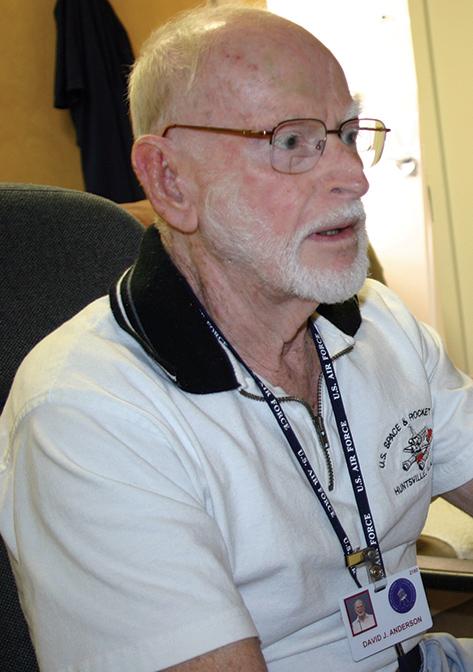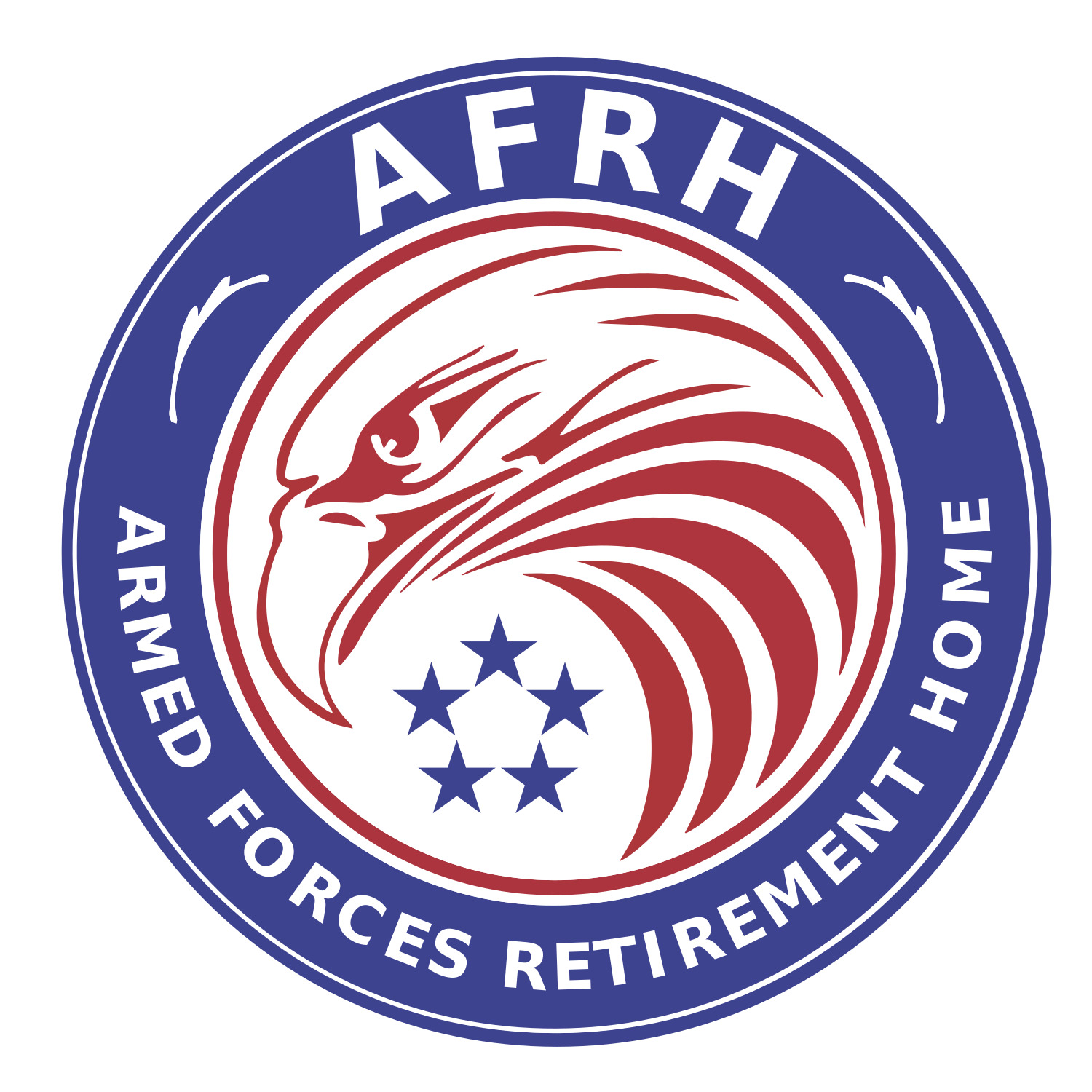
By Mary Kay Gominger
Some might call it fate…some might say it was just pure coincidence that resident David Anderson, a radio operator by trade, decided to leave the rough seas of the Navy to fly the friendly skies with the Air Force. It was a decision he made many years ago but it turned out to be one of the best decisions of his life.
“My career in the Air Force opened so many doors for me,” said David. “The experiences I had, the education I received, the people I met along the way…I just feel these are things I would have never accomplished had it not been for joining the Air Force.”
David was born in Louisiana and was raised in a little town just north of Biloxi, Miss., called D’Iberville. He graduated from high school and joined the Navy in 1948. Three years later, he got out of the Navy, and six months later, re-enlisted, this time in the Air Force. The training he had received from the Navy as a radio operator was just what the Air Force was looking for but instead of a ship, David found himself 30,000 feet in the sky aboard B50 bombers and other aircraft, transmitting and receiving crucial information. During the Korean War he was involved in transporting cargo and other supplies to American troops. In Vietnam he refueled fighter aircraft mid-air, all the while avoiding air to ground missiles and interpreting codes as they were transmitted.
“Our job refueling wasn’t so hard,” David recalled. “It was bad though when you fueled six fighter aircraft and only two returned for more fuel. You knew the others had been shot down and didn’t make it back.”
Next, David found himself flying typhoon reconnaissance in the Pacific.
“I found this duty both interesting and challenging,” David said. “We looked for low pressure areas that might develop and tracked them. Once they were full fledged typhoons, we would penetrate the eye and drop a rayon sound parachute that would provide us with all kinds of information about the typhoon – barometer readings, strength of the wind, air pressure - and we were better equipped to track where that storm was headed. It’s not unlike the hurricane trackers the Air Force uses today.”
David’s next move in the Air Force was recruiting duty. It was there he decided to enroll in a college course, not so much for the education at first but as a way to meet young men and women and encourage them to join the Air Force. His strategy was a good one, until his counselor, a retired Army general, caught on to his plan and talked him into taking more than just one course a semester. When it was all said and done, David ended up with a degree in mathematics with a minor in physical science and a teaching degree. He taught electronics at Navy Electronics School, all in Orlando, Fla., and also taught at a junior high and high school after retirement.
David’s last tour with the Air Force involved more education. His assignment was in Columbia, South America. He was required to speak fluent Spanish so he attended a six month school to learn the language. Since his retirement from the Air Force, David has also learned to speak French. As a result of the language learned in the U.S. Air Force, David taught Spanish for seven years at Disney University in Walt Disney World and for many more years in the Orange County area in the education program in various high schools in Orlando and currently David has volunteered as an interpreter for group tours of the Lincoln Cottage here on the AFRH grounds.
Today, David is very involved in the AFRH Amateur HAM Radio Club. He is presently teaching eight residents about HAM operations in hopes of building their membership.
“We right now have the ability to handle emergency situations if the need arises,” David said. “I am teaching the residents the FCC course. I did this for many years in Orange County, Florida, where they have many hurricanes. We were the first responders to set up communication for emergency workers and the Red Cross. The service we provide is very valuable to any community.”
David spends the winters down in Orlando, Florida, and the summers with his friends at the AFRH in DC.
“I’m what you call a snowbird,” David said with a laugh. “But the heat and humidity down in south Florida is very hard for my heart. I’m a year round resident here but I like to spend the winters with my family in Orlando.”
If you are interested in learning more about becoming an amateur radio operator, plan on attending one of their monthly meetings and find out what is required.
- Log in to post comments
